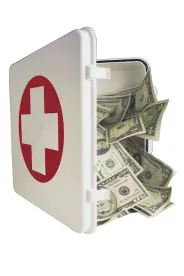While Medicare fraud has led to some recent significant takedown actions, unscrupulous actors see any government-funded healthcare program as a target.
Enter TRICARE and associated attempts to defraud the government. TRICARE is a health insurance program that primarily covers active-duty service members and their families, as well as military veterans, retirees, their families, and survivors. Beneficiaries can receive care from military hospitals or clinics, a civilian provider network, or TRICARE-authorized non-network providers. Plans vary based on location and military status. TRICARE provides health benefits for over 9 million beneficiaries.
Earlier this month, a Mississippi pharmacist and Louisiana marketer pled guilty in a multi-million-dollar insurance fraud scheme which encompassed both TRICARE and private insurers. In an intricate fraud scheme, entailing medically unnecessary medications, payments for referrals, copay obfuscation, fraudulent prescriptions, and kickbacks based on reimbursements, a Mississippi pharmacist and Louisiana marketing accomplice ran up more than $180 million in fraudulent billings.
TRICARE reimburses different amounts of money for different compounded medications. The pharmacist figured out which medications garnered higher reimbursements and adjusted formulae to produce more of those medications, disregarding medical appropriateness or efficacy. To find patients for these “adjusted” formulations, the pharmacist incentivized marketers to find prescriptions for these medications through a kickback scheme. He paid marketers a commission on the health insurance program reimbursements for these improperly formulated medications, including TRICARE reimbursements. The pharmacist was a co-owner of several compounding pharmacies, and he created a copayment reduction/waiver program which “falsely [made] it appear as if his pharmacy and its affiliate compounding pharmacies had been collecting copayments.” In addition to marketing the crooked compounding pharmacies and recruiting physicians to procure prescriptions, the Louisiana-based marketing accomplice used military acquaintances’ information to obtain fraudulent prescriptions.
While it appears there was no whistleblower in this case, a whistleblower who reported this TRICARE fraud would have been entitled to 15-20% of the government’s recovery in a False Claims Act case. TRICARE beneficiaries are uniformed servicemembers and their families. Defrauding TRICARE is abuse of taxpayer funds intended to take care of those who have made significant sacrifices for this country—and the families of those who have made the ultimate sacrifice.
The Department of Justice needs whistleblowers to report fraud involving TRICARE.




 />i
/>i

